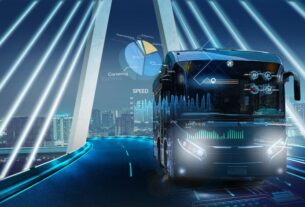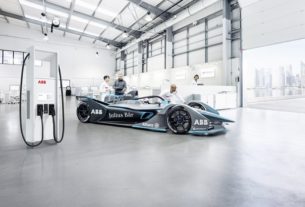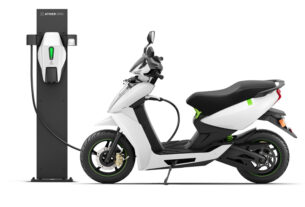It was in February 2018 that KPIT Technologies Ltd. had announced a technology partnership with Eicher Trucks and Buses for their Skyline Pro Platform. This was KPIT’s vision of driving modernisation in public transportation with its Revolo product. Cut to 2019 and the buses have been successfully running in Kolkata with the West Bengal operator, WB HIDCO, ever since its commercial deployment in May 2018. Rajesh Rajgor finds out the intelligence behind the technology in an exclusive interview with Chinmay Pandit, Head-Commercial Vehicle Vertical, KPIT

Software in mobility is difficult to understand. It is a complex affair. We, as Indians, experienced the complexity when the Vikram lander lost communication with the Chandrayaan 2 lander, ahead of its planned soft landing on the moon, last month. If not more, definitely the on-road mobility with several electronic functions from something as simple as the motion of wipers or the power-window controls in a vehicle have to be coded with a set of algorithms. One company from India that has mastered the art of coding the important software is KPIT. Headquartered in Pune, India, the company has worked on a slew of system integration formats for modern vehicles.
The gamut of these codings ranges from integration of various requirements like engine control, instrument cluster, active cabin noise suppression, digital turn signals, battery management, tyre pressure monitoring, lane departure warning, and so on and so forth. So, it was clear that the path-breaking platform Revolo, from their commercial vehicle vertical, must have definitely stemmed up from KPIT’s well-oiled process over the years. What began as a solution into alternate powertrain with conversion kits for Tata Indica that dominated the cab market back in 2009 slowly and steadily shaped into electric.
“Our evolution from 2009 as an alternate energy solution facilitator transformed us into an out and out designer of electric powertrain, given the fact that the entire industry was mulling and moving towards electric mobility,” says Chinmay Pandit, Head-Commercial Vehicle Vertical, KPIT. “We designed the charging socket, battery, motor, motor controller and auxiliary support from the motors to the wheels. We went on to get the structure patented in India as well as in China and Japan,” he adds. The conversion kits might have been a stepping stone but KPIT’s journey in intelligence has been two decades old. The company boasts of over 20 years of experience in the powertrain business right from their association with Cummins in the early days.
The significance of the software designed is such that it provides substantial benefits from the cost point of view and also in terms of efficiency. “Our structure on electric is not only a multi-motor design but also a modular design. Instead of having a large single motor, we have four small multiple motors. Since we have four independent motors, the voltage of batteries at any time in operation will be one-fourth of 600 volts; around 144 volts each,” Pandit elaborates. “Clearly KPIT worked on decentralisation of voltage. It has batteries placed all around the bus instead of a large centralised monolithic battery at one place,” he adds.
Roadmap to success
KPIT’s association with Eicher Skyline Pro E proved to be a successful business case for KPIT to work towards their future roadmap in the area of commercial vehicles. Clocking a daily average of 130 km with a service uptime of 95%, the buses have been a success with drivers, passenger and operators alike. “The drivers are happy as there is no front engine heat-generating source and with no clutch, no gear box and engine the driver feels comfortable. Credit also goes to authorities at WB HIDCO who oversee a tightened operation at various routes as demanded by passengers. I am told that for some of the routes they only charge Rs. 10 per ticket from anywhere to any destination. They have played a crucial role in making the successful run of Skyline Pro 9-metre AC buses in Kolkata,” Pandit observes.
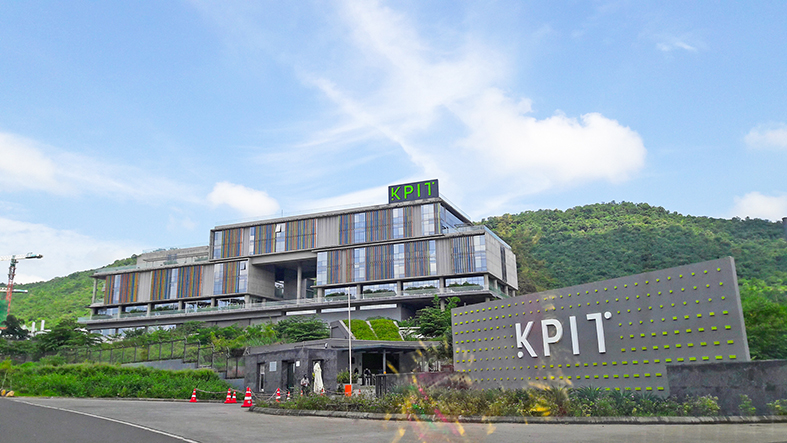
As is evident from a technology company standpoint, KPIT now has a clear roadmap to work with various companies as per their specifications. “Our roadmap is clear. We have an established powertrain design and we can work for different companies as per their design specifications. While we do so, we also realise that this cannot be a static design. We continue to stay invested to bring changes and innovations in the battery, motor and overall system performance to improve efficiency and also be adaptive to new battery chemistries coming from time to time. As our confidence in the newer components increases, we will bring the platforms, tools and accelerators out to the market with the support of OEMs,” he says.
KPIT understands that there is a lot of learning and unlearning to be done by the entire industry. “One cannot superimpose an understanding of IC engines on electric platforms that have been in use for over 100 years. While the software gets efficient the integration with components and its subsequent testing calibration can be brought down significantly. The flip side, however, will be that electric will require a lot of on-road testing time. An operator, who drives 600 km with the current diesel engine, spending few minutes in refilling the tank, will also have to re-work its operation. If not more, even the charging time has to be counted in for at least 20-30 minutes, if not 90 minutes,” Pandit explains.
Engineering services
Apart from the Revolo platform that comes under KPIT’s commercial vehicle vertical, the segment also has KPIT offering engineering services. It includes helping OEMs achieve the next level of software integration by identifying the gaps in the current and required specifications. “For instance, a city is coming up with a new specification for bus tenders and KPIT will do the assessment for the OEM and help them get closer to the specification for the orders. Our strategy is to comprehend the technologies that can be deployed as per the original equipment requirement. Having the right number and right type of sensors will only help OEMs keep costs at check. We are making important contributions to helping the OEMs become cost-competitive and enhance performance of the system,” Pandit asserts.
Software integration
It is not merely the electric platform that KPIT is dominant in; it has been driving the future of mobility by reimagining software technology in ADAS, AUTOSAR, connected vehicles, mechatronics and vehicle diagnostics. Take, for instance, the electronic control unit that KPIT has been developing for an industrial and farm equipment maker in the US that will help make tractors run autonomously. Drawing data from maps, land contours and image sensors, this ECU is expected benefit the farmer community at large. “It is absolutely possible to have autonomous technology in India in the long run if it makes a strong business case, especially for a commercial vehicle buyer. However, it is too early for India given the availability of drivers here. In India, therefore, we work on Advance Driver Assistance System (ADAS) like lane departure warning, blind spot detection, infotainment and cluster solutions, transmission and vibration control, etc., because of the regulation which is mandating some amount of driver assistance,” Pandit informs.
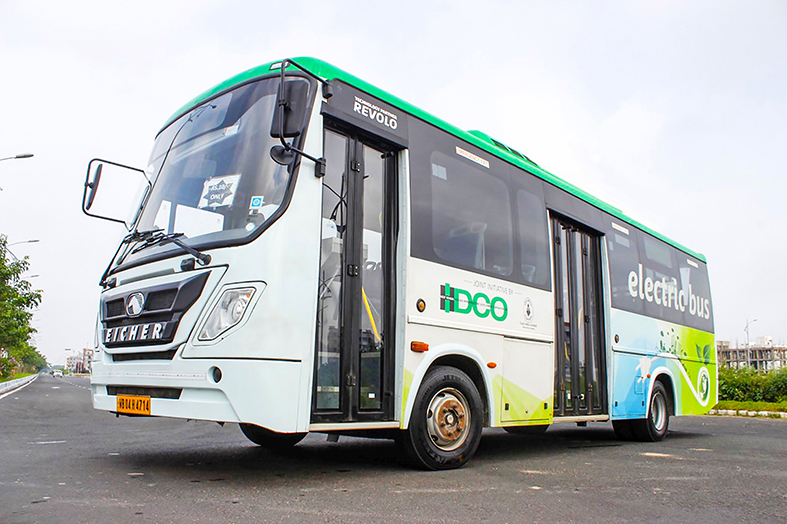
KPIT has also built a solution that adjusts the seat positions automatically by sensing the height and knee position of the occupants. A dedicated team has worked on varied aspects of electronics, mechanical, hardware and software to arrive at the best technology solution to be implemented. Similarly, the KPIT team has worked on designing the entire transparent canopy system for the open top buses that are easy to install, safe and can be stowed at convenience.
This doesn’t mean the traditional IC engines and its future is not been thought about. Many industry experts at various platforms have agreed that the IC engine will definitely transform further, post BS-VI, and that it will continue to co-exist with alternate powertrains.
“The case for IC engines post the BS-VI era will be like squeezing a wet cloth. It will be squeezed further, but now the efforts to squeeze it further will be more, perhaps significantly higher. So, we are at a stage where definitely there is potential to enhance diesel engines by further improvements in fuel efficiency and systems to reduce pollution. A lot of material and software work is happening in those areas. Therefore, instead of fully electric we are seeing increasing electrical components coming into the engine that will help it achieve better efficiency levels. Most of the industry players will continue to invest in this aspect of the mobility,” Pandit opines. In the last couple of decades, KPIT has embedded software for more than 10 million vehicles with 12 out of top 15 OEMs as customers across 300+ vehicle production programs. The company also has tie-ups with 25 premium colleges and offers courses that help them to become trained software developers and engineers in the automobile sector. Apart from the development centres in Pune and Bangalore, KPIT has development centres in China, USA, Germany and Japan. Together, the company employees more than 6,800 people to fast become the intelligence behind the new mobility across the globe.



